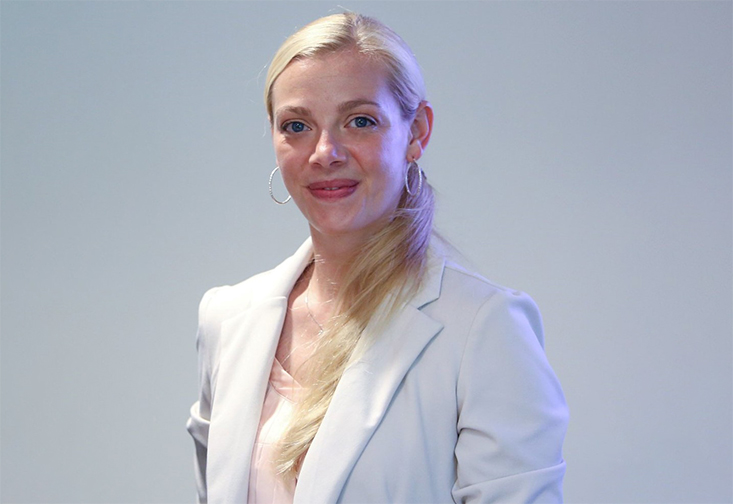A gentle rebuke from a professor changed the course of Rachel Sanderson’s career.
When she submitted her first paper in a Florida Studies class at USF St. Petersburg, it was returned with a note from her professor, J. Michael Francis.
“He basically said, ‘You’ve got potential. You’re asking good questions – how about putting some effort into this?’” Sanderson said, laughing. “And it was like, okay, challenge accepted.”
Today, Sanderson is earning her doctorate in History, and her efforts to uncover and document the lives of early Florida’s colonial residents are being rewarded with a Fulbright U.S. Student Program Research Grant. The grant will allow her to spend a year in Spain, where her research will highlight an understudied component of Florida’s early colonial period and challenge concepts of racialization and social organization.
“I want to help give Florida a historiographical home because I think without one, it's harder for people to take it seriously. Florida seems like an outlier,” Sanderson said. “I want to get at the root of why it has always seemed like an outlier and whether that's an appropriate interpretation.”
Sanderson has devoted years to the study of Florida’s early residents as the associate director of La Florida: The Interactive Digital Archive of the Americas. The project, which is led by J. Michael Francis, allows teachers, scholars, students and the general public to research key moments in Florida’s history, conduct detailed searches and create custom infographics from the entire collection.
The project was launched in 2018 and was recently revamped with new information about the multi-ethnic population that comprised St. Augustine, Fla. from the 16th to 19th centuries. Called “Lost Voices from America’s Oldest Parish Archive, 1594-1821,” the initiative made St. Augustine’s diocesan archives accessible for the first time to a global audience.
Sanderson will build on this research during her time in Spain. The first half of the year will be spent in central Spain, where she will comb the oldest official royal Spanish archive for petitions from Spanish citizens living in Florida. These petitions cover a variety of topics, but many ask the king for a legal change to their ancestry to hide that their birth was considered “illegitimate.”
“That's fascinating to me, because we have this idea in our head that as Catholics, illegitimate is illegitimate and there's no way around it,” Sanderson said. “A lot of scholars have talked about how people navigate that quite easily. But few scholars have talked about how that was done on the edges of the empire.”
Sanderson will spend the second half of the year in Seville, researching royal inspections of Florida settlements for missions and companies. These are of particular interest because they include descriptions of witnesses, which could provide insight into the population’s diversity and their systems of social organization.
“Right now, we live in a time where people are really disenchanted with the state of affairs and they feel helpless – like they are just one person,” Sanderson said. “I think it’s important to remind people that single individuals make a difference. They can shape direction, especially when they come together.”
Sanderson didn’t intend to become an historian. She earned her undergraduate degree in graphic arts from the University of Tampa in 2008. But with the lack of jobs due to the recession and a recognition that corporate America wasn’t a good fit, Sanderson decided to go back to school and study history at USF St. Petersburg.
The La Florida project allows her to use all her skills, combining her talent for researching historical documents with the ability to make the information accessible through graphic design.
Sanderson said she was delighted and surprised to learn she had won the Fulbright,
which is administered by the U.S. Department of State’s Bureau of Educational and
Cultural Affairs. She credited her USF professors with giving her the courage and
support to apply for the prestigious program. Sanderson said she was also grateful
to the donors who have helped the La Florida project, including the Duckwall Foundation
and the Hough Family Foundation.
And, of course, Sanderson said she is grateful to Francis, who was the first to recognize
her potential as a historian.
“He has been a terrific guiding and encouraging force since I joined the Florida Studies program,” she said. “And as a colleague, he continues to be a wonderful source of support.”
Interested in learning more about the Fulbright U.S. Student Program and how to apply? Please contact USF's Fulbright Program Advisor for students and Associate Director of the Office of National Scholars (ONS) Lauren Chambers at lschumac@usf.edu.
